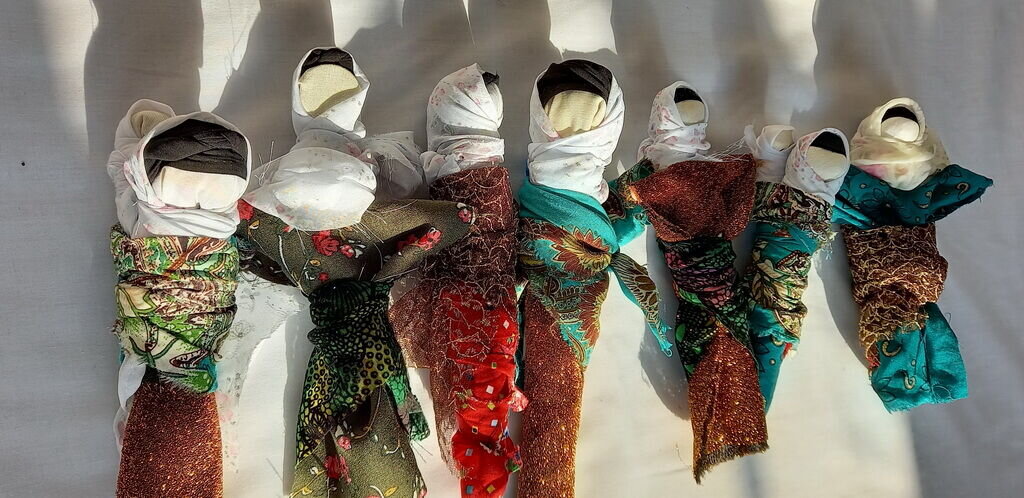Qazvin’s traditional dolls join national intangible legacy

TEHRAN – Three traditional dolls from Qazvin province have been officially recognized as intangible cultural heritage, highlighting the region’s rich cultural tapestry.
Qazvin’s director-general of Cultural Heritage, Tourism and Handicrafts, on Tuesday, announced the registration of three dolls as national intangible cultural heritage.
Further elaborating the recognition, Alireza Khazaeli highlighted the inclusion of the skill of making these dolls, each from different regions of Qazvin province, in the national heritage list.
“The dolls, named “Beklou” from Koohgir village in central Qazvin, “Qolchaq” from Rudak village in Buin Zahra,” he brought to light. “And “Khale Ba’ba” from Ardabilak village are officially registered.”
Khazaeli explained that some of these dolls hold ritual significance, while others are used for children’s entertainment. All materials used in the creation of these dolls come from leftover sewing fabrics and pieces of wood, the director-general noted.
The official further outlined that with efforts of the province’s heritage registration experts, a total of 106 intangible assets from Qazvin have been registered on the national heritage list to date.
Additionally, the registration files for four more intangible assets from the province are being prepared for submission, Khazaeli concluded.
Qazvin province, is a region steeped in rich cultural heritage and historical significance. As one of Iran’s ancient capitals, Qazvin boasts a diverse array of cultural, architectural, and artistic treasures that reflect its storied past. The province is renowned for its historical monuments, including the Sa’d al-Saltaneh caravanserai one of the biggest roofed caravanserais in the country, and numerous exquisite mosques.
Cultural heritage in Qazvin extends beyond its architectural marvels to encompass a vibrant tapestry of intangible cultural elements. Traditional crafts, folklore, music, and local customs are integral to the province’s cultural identity. Handicrafts such as carpet weaving, pottery, and miniature painting are celebrated for their intricate designs and craftsmanship.
Qazvin is also known for its rich culinary heritage, featuring distinctive dishes, and various sweets and pastries that are cherished both locally and nationally.
XF
